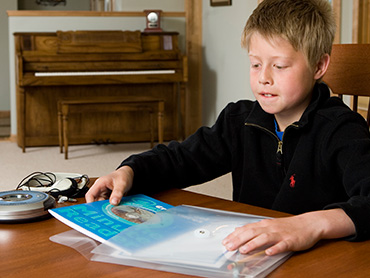 What day is it again? Is it still April? All I know for sure is that the novelty of distance learning officially wore off weeks (or has it been months?) ago. Many of us are struggling to give structure to days that feel endless. Our children are looking to us for guidance, which feels a bit like the blind leading the blind. Nobody knows quite how to navigate our new reality.
What day is it again? Is it still April? All I know for sure is that the novelty of distance learning officially wore off weeks (or has it been months?) ago. Many of us are struggling to give structure to days that feel endless. Our children are looking to us for guidance, which feels a bit like the blind leading the blind. Nobody knows quite how to navigate our new reality.
What we do know is that certain things will help the days of distance learning go more smoothly for both parents and children. In addition to eating well and getting enough sleep, mental health experts suggest the following:
- Getting fresh air.
- Moving our bodies.
- Connecting with friends and family while maintaining social distance.
- Managing expectations for what we can accomplish each day.
- Creating a predictable routine.
If you are a parent who is bewildered about how to somehow teach your children all the things, I want to focus on the last suggestion: Create a predictable routine. This is the most basic and most essential way to support your child’s learning. It's far more helpful than, say, trying to teach algebra. (Bonus: It’s also easier!)
Routine and structure help kids feel a sense of safety and comfort. Your child’s world might feel confusing and out of control right now, and kids can’t learn well when they feel unmoored. They may not be able to control the events unfolding outside their homes, but if they know where they’ll be working each day, where they can find their materials, and when they get to take breaks, they will have a much easier time focusing on the learning they need to do.
As a mother of four, I realized at the start of distance learning that routine would be our best friend. Still, the other day I found my ten-year-old frantically searching for an assignment he had misplaced, my eight-year-old zooming his classmates while hanging over the back of the couch, and my five-year-old screaming about our lack of yellow markers. Meanwhile, my toddler was coloring all over the walls. (Maybe teaching algebra actually is easier? I digress.) So we reorganized. We made schedules. We had each kid commit to a designated workspace. We made sure everyone had the materials they needed. We got some fresh air. And we got back to work.
We organize, we learn, things devolve into chaos, and we begin again. Every meltdown is a new opportunity to refine the routine. By the end of COVID, we’ll all be pros.
Here is an article about establishing routines and supporting our children’s mental health during this uncertain time. You can also read some articles about creating designated workspaces for your children here and here… but don’t let the Pinterest-worthy pictures intimidate you. My favorite ideas are the ones that suggest making privacy partitions out of cardboard boxes and sorting writing utensils into empty cans.
Contact us anytime to let us know how we at Read Naturally can continue to support you. We’re all in this together. Wishing you a happy Wednesday…or is it Thursday?
 Share your student’s success story—nominate him or her for our Star of the Month award. Win a Barnes & Noble gift card for the student and a Read Naturally gift certificate for your class!
Share your student’s success story—nominate him or her for our Star of the Month award. Win a Barnes & Noble gift card for the student and a Read Naturally gift certificate for your class!
Post a New Comment